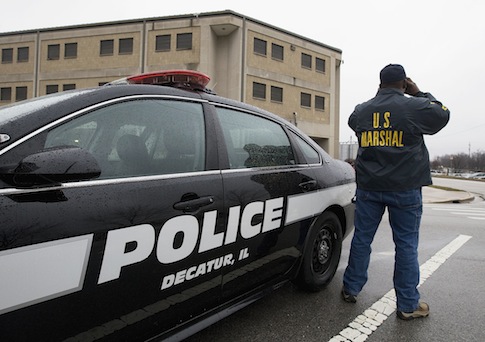Several congressmen expressed concerns about the federal witness security program (WITSEC) at a House Judiciary Committee hearing Tuesday after a May inspector general report revealed the Justice Department lost track of two known or suspected terrorists.
The Justice Department oversees WITSEC through the U.S. Marshals Service (USMS). The department lost track of the terrorists due to lack of communication with other federal agencies, including the FBI.
WITSEC is a voluntary program. One of the missing terrorists chose to leave shortly after entering the program; the other was terminated because he stopped cooperating with the USMS.
Assistant director of USMS David Harlow told the committee the terrorists have been located since the release of the IG report. Both terrorists are currently believed to be residing outside the United States.
The IG report revealed "several critical flaws in the witness protection program," Rep. Robert Scott (D., Va.) said.
"The number of known or suspected terrorists [in the program] is unknown," Chairman of the judiciary committee Bob Goodlatte (R., Va.) said. The individuals in the program include those trained in aviation, bombs, and other methods that could pose a threat to the United States. Some individuals are on the FBI terrorist watch list, according to Goodlatte.
Additionally, the IG report discovered that some known or suspected terrorists may have been allowed to fly on commercial airlines with the approval of DOJ. The terrorists may also have flown without the permission or knowledge of DOJ, as their names may not have appeared on the FBI no-fly list.
Paul O’Brien, deputy assistant attorney general in the criminal division of the Justice Department, told the committee WITSEC remains one of the most effective means of gaining information into criminal activities. There are currently around 700 active participants in WITSEC. Thousands have participated in the program since it began in 1971.
The deficiencies were uncovered during a routine agency audit. The problems in WITSEC were mostly caused by a lack of communication between agencies, according to DOJ inspector general Michael Horowitz.
The inspector general made 16 recommendations to DOJ in its report.
O’Brien told the committee that 15 of the 16 recommendations had been completed. He said the final recommendation, auditing every single witness file in the system, is underway.
O’Brien stated numerous times that more information sharing is occurring between USMS and the FBI.
Several congressmen asked whether the recommendations taken by the department were sufficient to protect the United States from threats.
"We have not audited the department since it took the necessary steps," Horowitz said.
